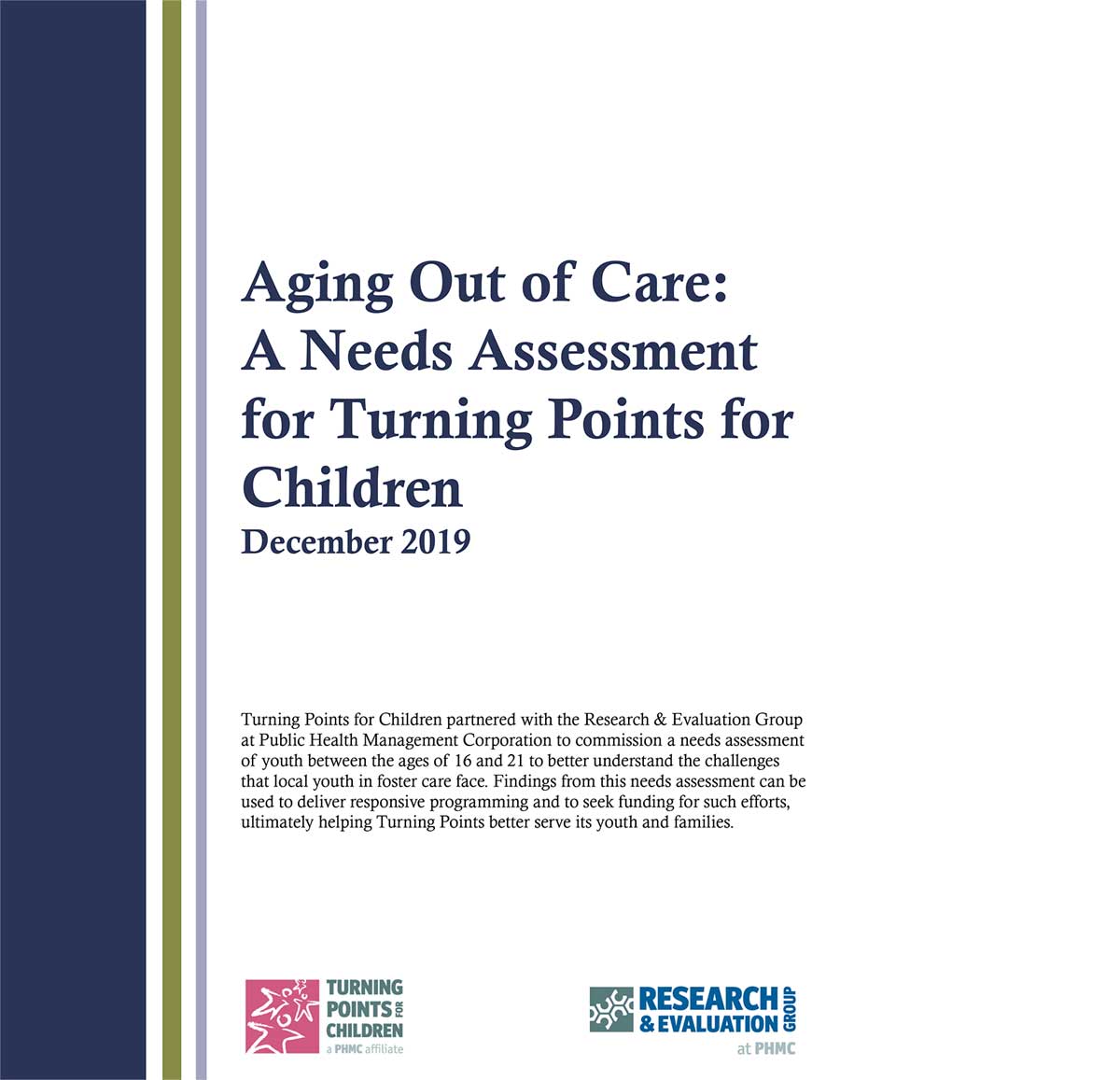Youth Villages stories

Leaving foster care: A needs assessment from Turning Points for Children, a LifeSet™ implementing provider
Youth transitioning out of foster care often face unique challenges compared to their peers; they have needs that aren’t always identified or addressed. Organizations and providers may rely on anecdotal information or on national reports to inform services, but such data may not accurately reflect the experiences and needs of a specific community’s youth.
In an effort to have a greater understanding of a targeted population of youth, Turning Points for Children, a Public Health Management Corporation (PHMC) subsidiary, partnered with PHMC’s Research & Evaluation Group (R&E Group) to commission a needs assessment of youth between the ages of 16 and 21. The goal of the assessment was to gain a better understanding of the challenges that local youth face and to develop recommendations that will allow Turning Points to better serve its youth and families.
Turning Points for Children provides a continuum of care for vulnerable children and families in four Community Umbrella Agencies in Philadelphia, Pennsylvania. Its programs include services that prevent child abuse and neglect, in-home services for families at risk, and foster care services aimed at reunifying families and assuring permanency for children. The agency is a LifeSet™ implementing provider.
The needs assessment consisted of meeting with local youth to help inform survey development, conducting a literature review, and developing and administering the survey. The survey was designed to document youth’s own perspectives on their current experiences and their anticipated needs, as well as strengths and challenges of their aging out experience. It covered education, employment, living arrangements, relationships, health, independent living skills, transition planning, support, and youth relationships with their caseworkers.
A total of 135 youth completed the survey, providing insight into their everyday challenges, gaps in care or resources, confidence levels, aspirations, interests and more. Some of they key takeaways from the assessment include youth’s desire to have more frequent contact with their caseworker; a strong need for increased financial skills training and assistance with finding stable housing; improved connections to mental health treatment and substance abuse programs; and the need to start planning for aging out earlier.
The complete needs assessment can be found here.
The assessment describes solutions to the identified needs from the survey and offers recommendations based on current programming and opportunities to develop new protocols, trainings and programs.
Comparing Turning Points Youth to Tennessee LifeSet Program Youth.
The survey also looked to explore how the needs of Turning Points youth compare to the needs of youth in the Youth Villlages direct service LifeSet program in Tennessee.
The comparison to LifeSet Tennessee found that while Turning Points clients and those in LifeSet assessment in Tennessee differed on a number of sociodemographic characteristics, their needs were aligned. The Tennessee program was equally effective for urban and rural young people despite differences in environmental factors, providing some evidence that the impact findings may be applicable to other contexts, including those outside of TN.
Hopeful Futures
The assessment revealed that youth are very optimistic about their futures despite the challenges and trauma they may have faced. Youth that participate in the LifeSet program are resilient, determined and motivated to make positive changes in their lives. This commitment and the mutual compassion shared between the youth and their case workers is a true testament to how powerful this program is, and something that speaks both locally and nationally.
In Their Own Words
When you age out of the system, what are you looking forward to?
“When I leave the system I look forward to finding my own house for my son, father of my son and myself to live in. And getting a great job and doing college.”
“Being free and able to make all my choices. Now I have to go through other people or a judge when I need certain things, so being more independent.”
If you are interested in learning more about the assessment method, findings and recommendations, or Turning Points for Children, please contact Monika Kreidie, mkreidie@turningpoints.phmc.org.
